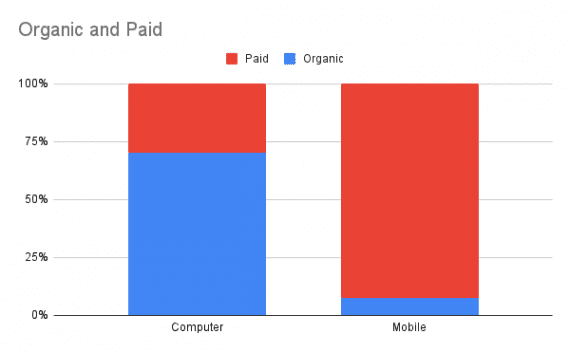Tripadvisor’s subscription service, Tripadvisor Plus, was first announced in November 2020, before entering beta for a small section of US users in December, and opening up to hotels in March. Earlier this month, the service launched fully in the United States. The Plus programme, said Soni, has allowed Tripadvisor to think about, “how we want to work with our partners, new ways that we can support them in their path to recovery – while also allowing us to connect with our consumers who are looking to travel again in a meaningful way, and a deeper way than they ever have in the past.”
Tripadvisor’s Plus subscription is working to combine a number of perks that will create value together: in these initial stages, the company is focused on offering savings and “delivering what we call the no-brainer moment for our travellers” – but Tripadvisor is conscious of the need to offer more than just pure discounts, especially if it wants Plus to be sustainable over the long term. “What we’re trying to do is really build a compelling hybrid business model that is focused on access – so we can leverage our scale to provide perks and discounts to our travellers – and we can use all the information we have to provide a curated set of recommendations to our travellers.
Loyalty programmes as they currently exist in travel, said de Jong, are “great customer information programmes – but is someone in a big chain loyalty programme really loyal to the chain? Or is it interchangeable with somebody else?”
As we move out of the pandemic, said de Jong, it’s in hotels’ best interest to take a long-term view. “There’s no reliability in looking at short-term optimisation of your occupancies and ADRs [Average Daily Rates]. We’re in for the long run, and that means you need to look at customer lifetime value rather than optimising for New Year’s Eve and when the doctors are in town.
Lennert de Jong of CitizenM noted that it can be quite challenging for hospitality businesses to go from a more “transactional environment”, which is normal for the industry, to the “customer relationship environment” of a subscription model. CitizenM had been working on developing subscription models for “quite some time” before the pandemic hit, and getting the business’s systems ready for subscriptions was a challenging process.

Why now for travel subscription models?
“It’s a question that comes up all the time,” agreed Soni. “Our stance is that subscriptions work today because they provide value to the consumer – and sometimes that value comes in the form of frequent use, but that’s not always the case.” She gave examples of different types of subscriptions that offer different things to the consumer, from a Netflix subscription that offers “unlimited access to exclusive content” to something like Stitch Fix, which focuses on curation and personalisation – “we know your fashion sense, and we’re going to send you a box of monthly goodies”, to businesses like Dollar Shave club that operate on a replenishment model.
Subscription models sit at the intersection of customer loyalty and revenue, guaranteeing repeat business for as long as a customer is locked in. A subscribed customer has a greatly increased customer lifetime value (CLV) and an inherently closer, ongoing relationship with the brand they subscribe to – making the benefits of the model obvious.
To CitizenM, said de Jong, the incentive and the benefit of a subscription shouldn’t be to earn loyalty points and cash them in, but because travellers want to stay with CitizenM. “We want people to commit to us because of the experience – the subscription is just a way for us to acquire customers with a very high customer lifetime value, and have them commit to us so we can commit to them in terms of the value we deliver back.
“There’s really, in my mind, no reason to believe that travel is not going to be just as successful at subscriptions as other industries have; in fact, it’s one of the very few remaining service industries that doesn’t have a high-value, affordable programme operating at scale today – we hope that Tripadvisor Plus is going to help bridge that gap for us, and for the industry.”
“I don’t think it’s so much about increasing the number of trips that someone’s going to take, but it’s about ensuring that when they do travel, they lean towards Plus and give us an opportunity to elevate their experience so we can in turn build that loyalty, and build that engagement with that guest in the long term, and that’s what we care the most about.”
De Jong referred to subscription programmes in travel as “the answer to the boring hotel loyalty programmes that are out there at the moment without any commitment”. Sileo picked up on this and put the question to both panellists: should subscriptions replace loyalty programmes in travel?
This, though, raises the question that Sileo brought up next: with consumer travel being something that only takes place, for most people, once or twice a year – is it enough to persuade them to invest in a subscription?
For Tripadvisor, as an OTA, there is also the need to be aware of how its subscription will interact with hotels’ existing loyalty programmes when they sign on to Tripadvisor Plus, and reassure hotels that Plus won’t interfere with their own loyalty schemes or make them redundant. “We’ve always worked very closely with our hotel partners to help them build their own identity, whether it’s on our Tripadvisor platform or elsewhere,” said Soni.
For hotels, the incentive of signing on to Tripadvisor Plus is that it gives access to a “high-spend, high-intent travel audience … We share the customer information with the hotel, and they have the opportunity to really own that relationship, and drive deeper engagement between that guest and [their] brand.”
Creating value and driving revenue with subscriptions
“Commitment works two ways, and that’s something that we want to propel in the coming years.”
Soni believes that subscription models have the potential to succeed in travel because “consumers have already adapted their spending patterns and their behaviours – they’ve taken onto subscriptions as a business model that works for them, and that’s particularly true for Gen Zs and Millennials.
Is a subscription model right for every brand?
Moderator Lorraine Sileo opened the panel by posing a fundamental question: what makes now, when the travel industry is still recovering from the effects of the Covid-19 pandemic, the right time for businesses to explore subscriptions?
This formed the basis of CitizenM’s corporate subscription plan, which allows subscribers to work from the ‘living room’ area at any CitizenM hotel (normally priced at per day) throughout their subscription period, stay for three nights per month in any CitizenM hotel, and use meeting rooms at any CitizenM hotel for three hours per month, with the option to add more nights or meeting room hours at a discounted rate. The company is also currently in the midst of testing a B2C subscription model with a “closed group” of consumers.
However, with the onset of Covid-19, “We said, ‘Okay, this is now a great time to do a proof of concept, and fast-track a couple of ideas for post-pandemic.’ We never became post-pandemic, but in September, we went to talk to our corporates about a corporate subscription.” With many companies moving out of their offices due to the pandemic and employees working remotely, CitizenM saw an opportunity: “How about a subscription to a hotel company where you can work, meet, sleep and play in one place?”
“The negative hypothesis of a demand manager or revenue manager will be that people are only going to show up on a Tuesday, on the most expensive night, and you’ve given the room away for less,” de Jong noted. “My hypothesis is – we want to increase the customer lifetime value of a very committed audience. [Corporate subscribers] are not just going to come for one night, they’re going to consume multiple nights, and they’re probably also going to think about you when they travel for leisure.”
Will travel subscriptions replace loyalty programmes?
At virtual travel conference Phocuswright Europe Online 2021, Lorraine Sileo, Senior Analyst and Founder at Phocuswright Research, chaired a panel to discuss whether and how subscription models could work for travel. Her guests, Kanika Soni, Chief Commercial Officer at Tripadvisor, and Lennert De Jong, Chief Commercial Officer at CitizenM Hotels, discussed the subscription packages launched by their respective brands, why now is the right time to launch subscriptions in travel, how subscriptions can improve customer loyalty in travel, and how travel companies can make subscriptions pay off.
“I think it’s an exciting time for travel companies to really embrace innovation,” said Tripadvisor’s Kanika Soni. After a tough year for all travel businesses, including Tripadvisor, the brand is using the opportunity to “think very carefully about what we focus on and why, how we prioritise our resources and investment, and … step back and take stock of what our brand truly stands for. How do we re-energise our company mission, and then ensure that everything we do is in service of that mission, and in service of our travellers?”
What will it take to make a subscription-based business model work in travel?
“On the soft side, you need to make sure that they experience extreme convenience through all of the digital efforts we’ve done in the app, making sure everything is simple and also human, and their experience gets better. For us, it replaces loyalty programmes, but not without a soft side. We don’t think that if someone doesn’t like to stay at CitizenM, they’ll come to us because of the subscription – that’s not the programme. If you don’t like it, you’re not going to buy the subscription; you’re not going to be loyal.”
“When we look at the future evolution of Plus, we do want to own that entire traveller journey, whether that’s hotels, flights, car rentals, or experiences – and we want to make sure we’re playing up the service angle, so that consumers really feel like true VIPs when they’re travelling, and we can elevate that experience for them. When we do that, when we actually deliver that kind of value – I think that’s how we will build loyalty, which kind of lacks in the travel industry.
“For us, subscriptions are the ultimate form of commitment,” said de Jong. “The moment that you buy Amazon Prime, you’re committed to buy at Amazon, and you’re not in market any more for anything else. I’ve seen it throughout my own life – a subscription to a theme park means that part of my free time with my kids is now destined for that theme park, that I would normally only visit once every two years – and now I’m going there three times a year.”
Subscription-based business models are gaining traction in all types of verticals, from fashion and FMCG to streaming on demand, fitness and beauty.
But can subscriptions work for every single industry – including ones where purchases are made much less frequently, like travel? Over the past couple of years, the idea of travel subscriptions has attracted increased interest, with Skift naming subscription travel one of its Travel Megatrends for 2020, calling it the “next frontier of loyalty”.



![Navigating the IDFA Opt-In on iOS 14.5 [And How To Create App Tracking Transparency]](https://research-institute.org/wp-content/uploads/2021/04/what-to-know-before-you-sell-your-small-business-768x432.png)
![[Press Release] Convert Experiences Announces Integration with Magento](https://research-institute.org/wp-content/uploads/2022/07/press-release-convert-experiences-announces-integration-with-magento.png)
